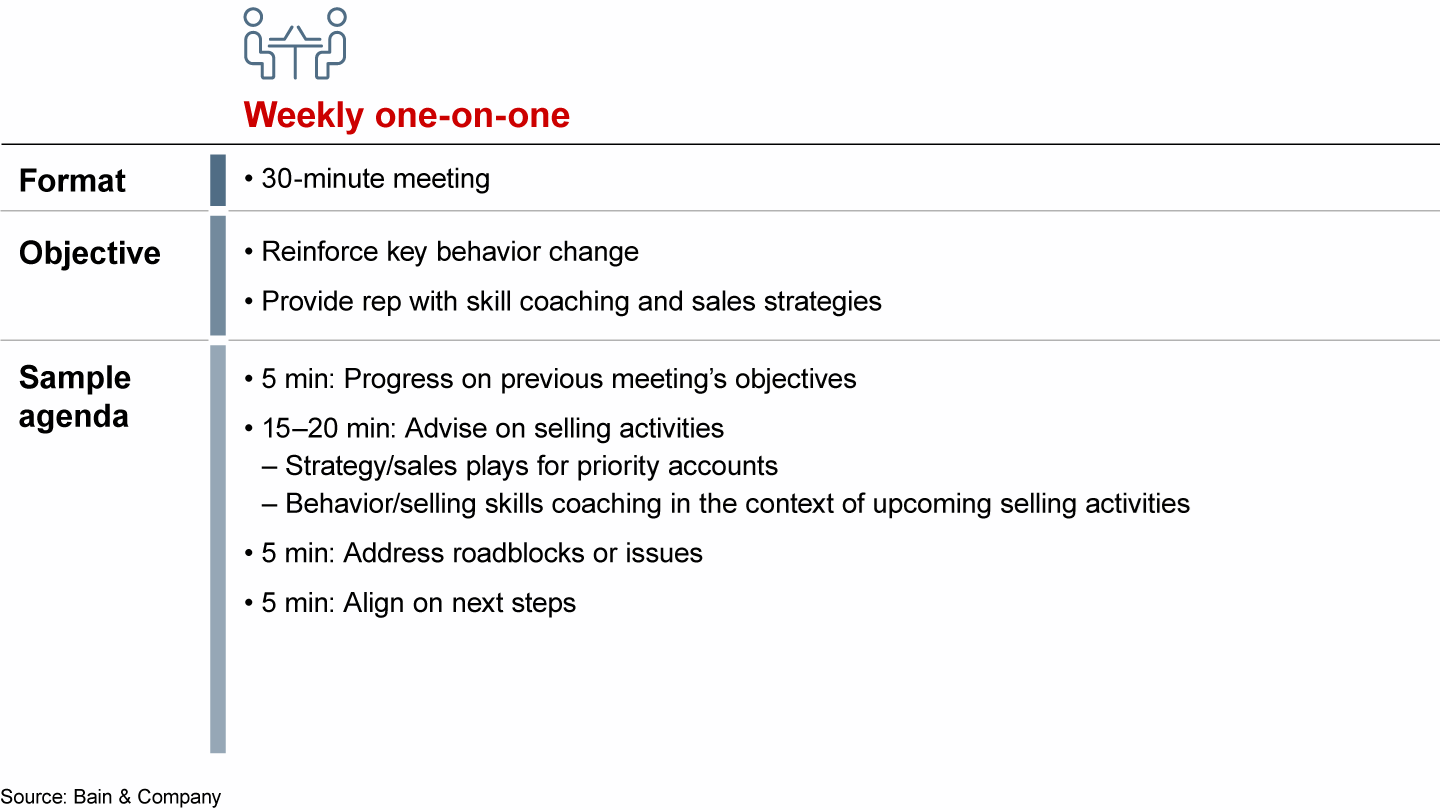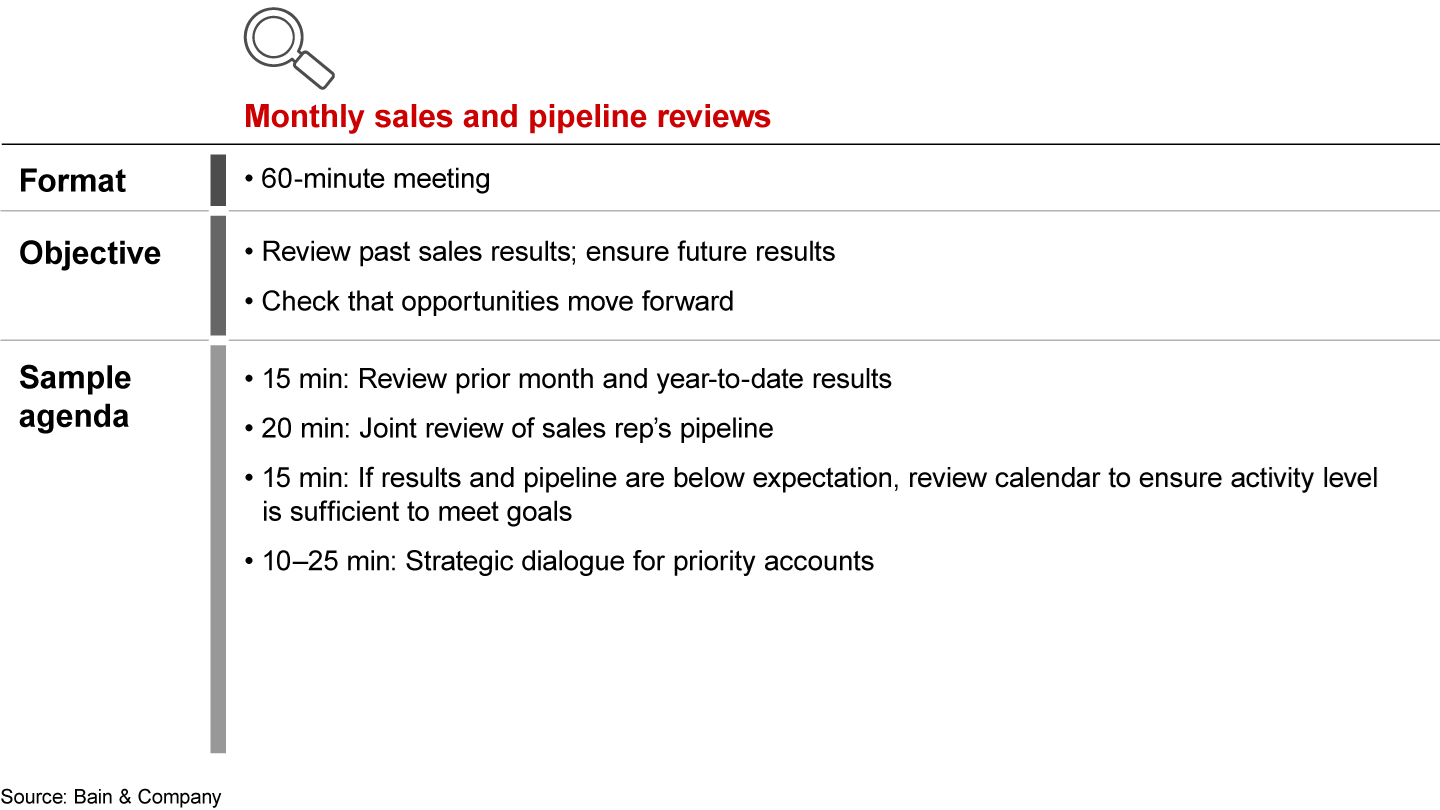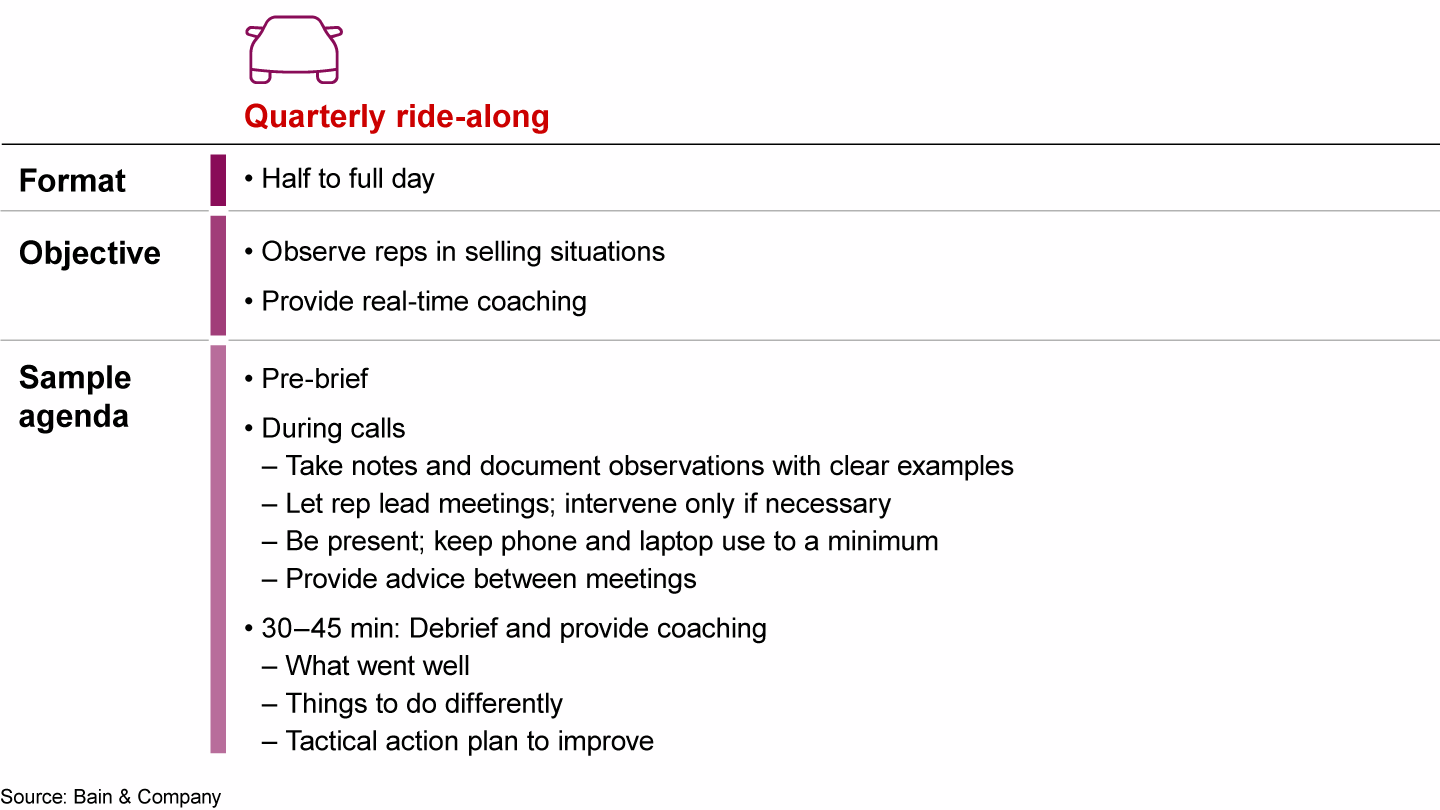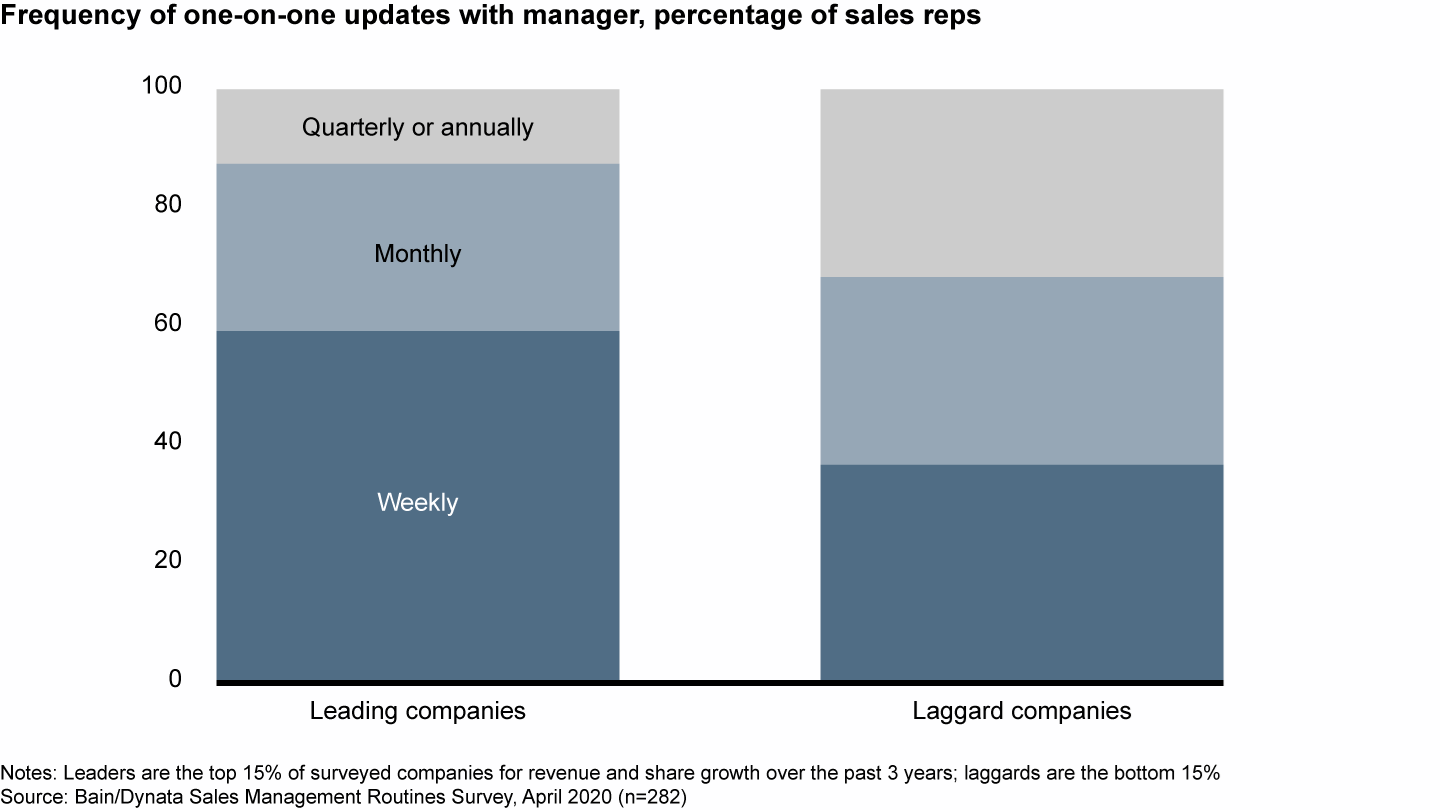Brief

The Covid-19 pandemic now has touched billions of people through the downstream employment and economic consequences of the health crisis. In business-to-business (B2B) markets, relationships with customers and employees are being put to the test.
In this difficult environment, maintaining customer relationships—and by inference, revenues—hinges on bringing out the best of employees in the commercial organization. Beyond a temporary disruption to normal life, the pandemic will accelerate underlying trends in how B2B companies handle selling, and it will shift the blend of skills required to succeed in the future.
B2B companies are looking to their commercial leaders to soften the blow and lay the groundwork for emerging not just intact, but in a better position relative to competitors. To accomplish this, a few areas deserve the highest priority right now.

Macro Surveillance Platform
For more detail on the business implications of coronavirus from Bain’s Macro Trends Group, log on to the Macro Surveillance Platform. Learn more about the platform >
1. Reassure the sales staff through your actions.
Overcommunicate, sure, but show rather than tell. That is, demonstrate how much you value the sales staff through your actions, such as a greater investment in coaching.
Money also matters. Firms may need to adjust the compensation plan for the coming year (assuming you can afford to do so), both to retain productive people and to keep them focused on customers. For example, one technology company is changing its compensation plan to remove thresholds and add modest commission accelerators even below 100% of the sales target.
Keep a close eye on the top performers and people on critical accounts. Look for any high-risk situations such as top performers in an account or segment that will inevitably decline more than others during a downturn. Assume that competitors will aggressively court some of your best sellers.
2. Reinforce discipline in sales cadence.
Too many sales forces have grown lax or inconsistent in maintaining a disciplined sales cadence, such as weekly one-on-one sessions and team meetings between frontline managers and sales representatives (see Figure 1). With reps working remotely and strong customer relationships being key to stable revenues, this discipline needs attention—though in new formats.
Three recurring meetings should be part of every sales manager’s cadence


Three recurring meetings should be part of every sales manager’s cadence


Three recurring meetings should be part of every sales manager’s cadence


A new survey by Bain & Company and Dynata of 262 sales reps found that only half meet with their manager at least once a week, but that at companies experiencing the fastest revenue and market share growth over the past three years, the rate is double that of laggards (see Figure 2).
Sales representatives at leading companies meet with managers more frequently


3. Foster skills and behaviors that have become crucial.
For field reps, being effective in virtual meetings is suddenly crucial. Best-practice sharing is the easiest and fastest way to augment such skills. One logistics company, for example, has paired sales reps to role-play initial sales meetings over video, created meeting material templates and hosted calls to share tips on preparing for meetings.
This is also an opportunity to experiment with technologies that allow managers to review video sales calls. As a coaching aid, for example, some companies are using Gong to look for characteristics such as empathy in customer meetings.
Even inside sales teams must change. While they have long interacted with customers virtually, they also tend to cluster in an office where they can meet physically with one another and with managers. These teams now need to replicate meetings virtually, listen to calls remotely or review them later offline, and use virtual leaderboards or sales contests to recreate the atmosphere of the sales floor.
4. Plan now for new skills and behaviors.
This period of prolonged turmoil warrants having commercial executives step back to determine which capabilities they need to augment for life after the crisis. With so much activity moving online, executives will have copious data available on how people work and interact, which should inform an assessment of future capabilities.
Inside sales will become more prevalent for many B2B companies, as they realize complex products can be sold through virtual interactions. A large multinational company, for example, is now looking to expand its use of inside sales abroad, particularly in markets where reps have been working from home for some time.
Strong account management skills, including in the post-sale relationship, also become more important during periods of uncertainty, in order to keep (and hopefully expand) business from current accounts. We expect roles such as the “customer success manager” in software to spread. One software company is building out a new customer success function despite a general hiring freeze.
For more complex sales, the trend away from the relationship-focused generalist and toward industry expertise will gain pace. Reps will need topical depth when they speak with customers.
Even in an economic downturn, productive sales staff have options. B2B companies should invest to retain their best employees and help them develop the skills to weather the storm. Those firms that adapt their mix of capabilities will get a head start on securing a better competitive position when they emerge from the downturn.

Coronavirus
The global Covid-19 pandemic has extracted a terrible human toll and spurred sweeping changes in the world economy. Across industries, executives have begun reassessing their strategies and repositioning their companies to thrive now and in the world beyond coronavirus.
Jonathan Frick, Mark Kovac and Wade Cruse are partners with Bain & Company’s Customer Strategy & Marketing practice, and Mark leads the B2B Commercial Excellence group within the practice. They are based, respectively, in London, Dallas and Singapore.

About the Research
Data powered by Dynata, a leading global first-party data and insights platform.